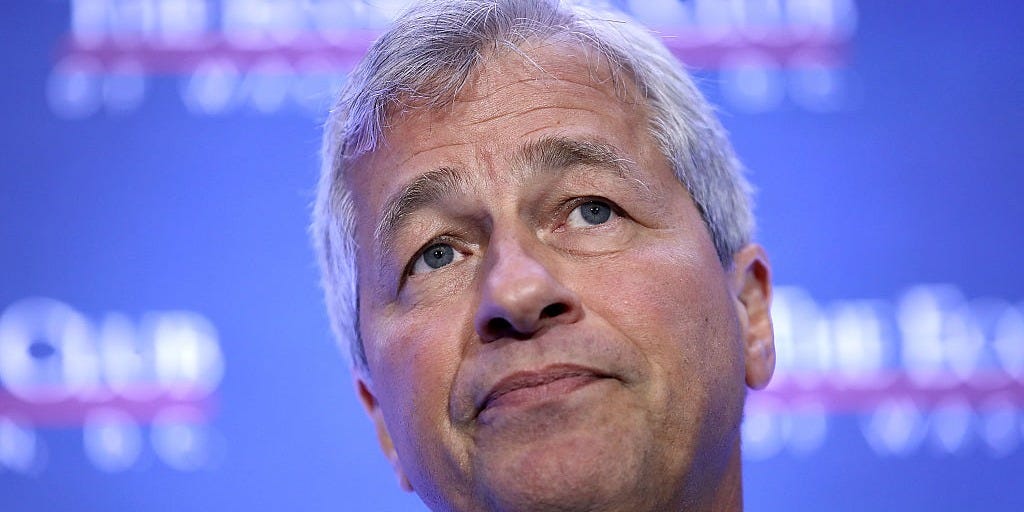Jamie Dimon flagged a long list of threats facing the US economy on Friday. He’s worried about consumer spending, inflation, quantitative tightening, fiscal deficits, and war. The JPMorgan CEO said economic conditions are pretty good for now, but that could change. Loading Something is loading.
Thanks for signing up!
Access your favorite topics in a personalized feed while you’re on the go.
Jamie Dimon cautioned against complacency on Friday, reeling off a list of pressing concerns in JPMorgan’s second-quarter earnings release and on the banking giant’s earnings call.
The billionaire banker hailed the US economy’s resilience, the solid state of consumer balance sheets and spending, and continued employment growth in his earnings commentary. But he also underlined the presence of “salient risks in the immediate view.”
“Consumers are slowly using up their cash buffers, core inflation has been stubbornly high (increasing the risk that interest rates go higher, and stay higher for longer), quantitative tightening of this scale has never occurred, fiscal deficits are large,” the JPMorgan CEO wrote.
“The war in Ukraine continues, which in addition to the huge humanitarian crisis for Ukrainians, has large potential effects on geopolitics and the global economy,” he added.
Dimon reiterated on the bank’s earnings call that consumers are in good financial shape, noting that should help them ride out a recession if one does occur. But he noted the “headwinds are substantial and somewhat unprecedented,” according to a transcript provided by AlphaSense/Sentieo.
The bank chief again highlighted the Ukraine conflict, as well as potential disruption to global energy supplies, and the unknown fallout from governments reducing their nations’ money supply. If any of those dangers hit the US economy, it’s unclear whether they would cause a “soft landing, a mild recession, or a hard recession,” he added.
Dimon shared similar concerns in an interview with The Economist released earlier this week, and has previously warned there are myriad threats facing the global economy.
Inflation has dropped from over 9% to 3% in the last year, fueling hopes among investors that the Federal Reserve will reverse its aggressive hikes to interest rates. Rates have jumped from nearly zero to north of 5% since last spring, squeezing consumers and businesses, inflicting pain on debt-reliant sectors such as commercial real estate, and increasing the risk of a recession.
